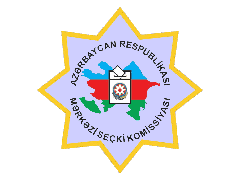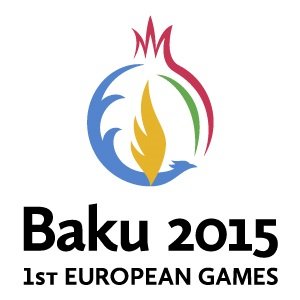NEWS
-
28.02.2022
Lithuanian Ambassador to Azerbaijan Egidijus Navikas has visited the International Mugham Center.
The director of the International Mugham Center, People's Artist Murad Huseynov informed the diplomat about the activities of the institution.
He provided insight into the Mugham Center's ongoing projects an concerts held in the framework of international cooperation. The sides exchanged views on joint cultural projects.
Notably, the Mugham Center is constantly expanding its activities, holding numerous international projects, concert programs, seminars and conferences aimed at promoting mugham art.
International Mugham Center and the Hungarian Cultural Heritage have recently signed a memorandum on cultural cooperation.
The memorandum will contribute to the expansion of cultural ties between the countries and the promotion of mugham art and Azerbaijani music.
The director of the Mugham Center Murad Huseynov also met with the head of the Uzbek National Center of Makom Art Saibjan Begmatov to discuss the partnership in various areas.
The sides agreed on a cultural partnership with the Uzbek National Center of Makom.
The heads of cultural institutions discussed promising areas of interaction, including in the promotion of national music, in the mutual study and research of the mugham and the art of makom, known as the Uzbek professional music of oral folk traditions.
An agreement was reached on the exchange of experience between researchers of the two countries.
-
28.02.2022
Harpsichord music will sound at the State Philharmonic Hall.
Khurshid Abdullayeva. Nemat Tanriverdiyev (trombone), Mammad Rajabli (clarinet), Nigar Mammadova (organ) will please the audience with works by Alfred Schnittke, Ilham Azmanli and Rufat Ramazanov.
Harpsichord is a keyboard stringed musical instrument with a plucked sound extraction method.
The earliest mention of a harpsichord-type instrument appears in a 1397 source from Padua (Italy).
As a solo instrument, the harpsichord remained in use until the end of the 18th century. A little longer it was used to perform digital bass, to accompany recitatives in operas.
In the second half of the 18th century, the harpsichord began to replace the piano - an instrument that was more in line with that performing and composing era.
The revival of the culture of playing the harpsichord began at the turn of the 19th - 20th centuries, when musicians became convinced of the discrepancy between the timbre of the piano for the performance of works previously written for the harpsichord.
-
28.02.2022
Azerbaijan and Poland intend to further expand the cultural partnership.
The initiative was announced at the meeting between the Culture Minister Anar Karimov and the Polish Ambassador to Azerbaijan Rafal Poborski .
Welcoming the ambassador, Anar Karimov spoke about the deep historical ties of friendship and cooperation between Azerbaijan and Poland.
The Minister spoke about the "Peace4Culture" global campaign aimed at preserving cultural heritage and creating peaceful and sustainable societies and invited Poland to join the project.
The Polish Ambassador Rafal Poborski said that cultural partnership between the two countries are close and will contribute to the deepening of comprehensive relations.
The sides stressed that there are favorable opportunities for further expansion of cultural partnership between the two countries.
They expressed satisfaction with the sincere friendly relations between the two countries on the occasion of the 30th anniversary of the establishment of diplomatic relations between Azerbaijan and Poland.
-
"CODA," a heartwarming coming-of-age comedy-drama, took home the top film award at the 28th Annual Screen Actors Guild (SAG) Awards held in Los Angeles County Sunday evening, picking up the Outstanding Performance by a Cast in a Motion Picture, according to Xinhua.
Written and directed by Sian Heder, the film stars Emilia Jones as the eponymous CODA (child of deaf adults), who is the only hearing person in her home. When the girl discovers a passion for singing, she must choose between family obligations and her dreams.
Troy Kotsur nabbed the award for Outstanding Performance by a Male Actor in a Supporting Role for "CODA," making history to become the first deaf actor to win an individual SAG Award.
Will Smith won the award for Outstanding Performance by a Male Actor in a Leading Role for biographical drama film "King Richard." He plays Richard Williams, the father and coach of the famous American tennis players Venus and Serena Williams.
Jessica Chastain was honored with the award for Outstanding Performance by a Female Actor in a Leading Role for her performance in biographical drama film "The Eyes of Tammy Faye."
Outstanding Performance by a Female Actor in a Supporting Role went to musical romantic drama film "West Side Story"'s Ariana DeBose.
The latest James Bond film "No Time to Die" won the award for Outstanding Action Performance by a Stunt Ensemble in a Motion Picture.
The SAG Awards are accolades given by the Screen Actors Guild - American Federation of Television and Radio Artists (SAG-AFTRA) to recognize outstanding performances of the year in film and prime time television.
-
28.02.2022
A new group exhibition "Postponed" has opened at the YARAT Contemporary Art Space.
The exhibition held at ARTIM Project Space, features art pieces by Nargiz Abdullayeva, Aghababa Baghirov , Leyli Ahmedova, Mushfiq Heydarov, Novruz Mammadov, Ali Yusibov and Sabit Zamanov.
The art project "Postponed" captures the essence of postponement and delay in its most basic form, encouraging us to consider the topic more profoundly and metaphysically.
Through the lenses of various interpretations of the artists, the thought-provoking "Postponed" explores the subject of delayed wishes, postponed realisation, and aspirations.
Even the possibility of a delay or postponement can be unsettling in the fast-paced reality we have already become accustomed to.
The everyday life of a contemporary individual is full of time-bound activities, deadlines, and situations that necessitate predictability and control. However, due to the unpredictable nature of life, circumstances can occasionally lead to collapse, intentions can be misplaced, and expectations are not met as they were intended. Similar to the butterfly effect in chaos theory, delay can shift the course of events and transform the original state, resulting in significant differences.
The exhibition re-contextualizes "postponement", inviting audiences to think through the impacts of delays in life, whether personal or public and echoes with personal maturity and approaches in the context of "postponed activities," which the artists wish to offer as a departure point for many possible stories.
Mushfiq Heydarov (b. 1989, Guba) studied at the A. Azimzade Azerbaijan State Art College in 2007-2013.
He graduated from Azerbaijan State Academy of Fine Arts with a bachelor's degree in sculpture in 2017. He additionally practises in such mediums as graphics and installation. The artist has been a participant of several art symposiums and exhibitions such as, "Kuknar" International Art Festival (Heydar Aliyev Centre, 2014), "World Art Games" (Montenegro, 2014), "Art energy-20" (Azerbaijan National Art Museum,2014) "Futurismo" (Landmark, Baku, 2016) and etc.
Nargiz Abdullayeva (b. 2000, Baku) graduated from Azerbaijan State Academy of Fine Arts with a bachelor's degree in "Book design and illustration" in 2021. She is currently practising "hand poke" style tattoo art and game design.
Ali Yusibov (b.1998, Ganja) graduated from Azerbaijan State Oil and Industry University in 2020. He started his artistic practise in collage-art since 2019. The artist often interprets his works as a personal diary and express his intimate feelings through them. Ali is currently working as a graphic designer.
Aghababa Baghirov (b.1997, Baku) is a contemporary artist with a degree in "Computer Science" from Baku State University. In his practice, Aghababa mainly focuses on video games, digital art, VR/AR, and 3D modeling.
By engaging in contemporary art, he makes interrelations between humans, nature and technology. His works were shown at "Fogs Turned Into Epic Story In My Head" group exhibition (YARAT Centre, Barda, Ganja and Khachmaz State Gallery 2020 -2021); YARAT Studios (2019-2020); Virtual ARTIM (2020). He is the winner of ARTIM Lab Project’s 2020 edition.
Novruz Mammadov (b.1986, Salyan) has studied bachelor and master degree in Sculpture at Azerbaijan State Academy of Fine Arts.
He works with various media including painting, installation and predominately sculpture. He was a participant of number exhibitions, symposiums both nationally and internationally which include DYSPHONIA (ARTIM Project Space, 2017) ; Comfortably Numb (ARTIM Project Space, 2016) Together We Are (2015, travelling exhibition in Paris, France; Davos, Switzerland; Budapest, Hungary; Rome, Italy; Ankara, Turkey), Semeni International Art Contest (Heydar Aliyev Centre, Baku, Azerbaijan, 2014), Aluminum IV International Contemporary Art Biennial (Baku, Azerbaijan, 2012) Chankiri Stone Sculpture Symposium (Chankiri, Turkey, 2011) and many others. Since 2011 he is a member of the Azerbaijan Artists Union.
Sabit Zamanov (b. 1986, Gusar) graduated from Azerbaijan State Acadmy of Fine Arts with master degree in sculpture. He currently works as artist-sculptor. He participated in group exhibitions and festivals such as; "Reduce, Reuse, Recycle" (Baku, Azerbaijan, 2021); "Combinat Urban Art Show" ("To Be a Woman" festival, Baku, 2019); "Make the Earth Smile Again" (Baku, Azerbaijan, 2019); Semeni International Art Contest (Heydar Aliyev Centre, 2018); "Dysphonia" (ARTIM Project Space, Baku, 2017)
Leyli Ahmadova (b.1994, Baku) studied at the A. Azimzade Azerbaijan State Art College in 2009-2012. She received bachelor’s degree from Istituto Europeo di Design in fashion design in 2016. Practicing different medias, the artist aims to broaden the idea of what art is and how it works.
The art is fundamentally the connective tissue that energises all of her activities. In 2017-2019, she was the artistic director of fashion brand "Kauseffekt".
The exhibition aroused great interest among art lovers.
-
Azerbaijani cultural figures have released a video dedicated to the 30th anniversary of the Khojaly genocide.
London-based musician, composer, actor and music teacher Emin Mejnunbeyli (Macbayli) and well-known poetess Leyla Begim from Prague worked on the project implemented with the support of the State Committee on Work with Diaspora, Trend Life reported.
The project brought together Gabib Jabrayilov (director of the video), Erden Erdem Gonenc (Turkiye). The adaptation into English was made Gulnara Hall (Austin, Texas, USA).
On February 25-26, 1992, Armenian armed forces, directly supported by the 366th regiment of the former USSR, stationed at that time in the town of Khankandi in Nagorno-Karabakh region of Azerbaijan attacked, from five directions, the town of Khojaly.
About 613 civilians, mostly women and children were killed in the massacre, and a total of 1,000 people were disabled. Eight families were exterminated, 25 children lost both parents, and 130 children lost one parent. Moreover, 1,275 innocent people were taken hostage, and the fate of 150 of them remains unknown.
-
Azerbaijan Independence Museum has hosted an exhibition timed to the 30th anniversary of the Khojaly genocide.
Some 18 works by People's Artist Khanlar Ahmadov were showcased as part of the exhibition.
Public figures, culture and science representatives attended the event.
The speakers noted that the Khojaly genocide is one of the most serious war crimes against humanity committed by the Armenian military against the peaceful Azerbaijani population.
As a result of Armenia's unfounded territorial claims and aggressive policy, about 20 percent of Azerbaijan's internationally recognized territory was under occupation for almost 30 years.
A policy of ethnic cleansing was carried out, physical and moral terror was carried out against the Azerbaijani people, over one million people were expelled from their lands and became refugees and internally displaced persons.
Armenia also carried out moral aggression and genocide against the religious, cultural and historical heritage of Azerbaijan.
The Khojaly genocide, which is a tragedy of the 20th century, was the result of this aggressive and criminal policy of the Armenians. This tragedy, which occurred at the end of the 20th century, is one of the grave crimes directed not only against the Azerbaijani people, but also against all mankind.
As a result of the Second Karabakh War, Azerbaijan's territorial integrity was restored. Restoration works are underway in the liberated territories.
The exhibition "Punishment of Crime" aroused great interest among the museum visitors.
-
The Cadenza Chamber Orchestra has performed a marvelous concert at the International Mugham Center.
The concert "Following the footsteps in the snow: coordinates - 39°54'47" north latitude, 46°47'25" east longitude" was timed to coincide with the 30th anniversary of the Khojaly genocide.
Works by Gara Garayev, Uzeyir Hajibayli, Agshin Alizade, Ayaz Gambrali, as well as Tahir Ibishov and Rakhil Hasanova were performed at the concert. Ramiz Rovshan and Gasim Gasimzadeh's poems were recited by Javid Baba.
The performances of artists and musicians were accompanied by video footage of the Khojaly tragedy.
The orchestra's artistic director is the well-known composer Turkar Gasimzade, concertmaster-Samir Asadov, video director-Elnur Mehdiyev.
Musicologist Shafagat Mammadova addressed the event. She spoke about the concept of the project.
Shafagat Mammadova noted that the Khojaly genocide, one of the most serious war crimes against humanity committed by the Armenian military against the civilian Azerbaijani population, is on a par with such horrific tragedies of the last century as Khatyn massacre, My Lai massacre and atomic bombings of Hiroshima and Nagasaki.
As a result of the Armenian aggression, about 20 percent of the Azerbaijan's territories were under occupation for almost 30 years.
A policy of ethnic cleansing was carried out, physical and moral terror was carried out against the Azerbaijani people.
More than one million people were expelled from their lands and became refugees and internally displaced persons. Azerbaijan's cultural heritage was looted and destroyed.
As a result of the 44-day Patriotic War, Azerbaijan's territorial integrity was restored. An active process of restoration is underway on the liberated lands.
Armenian military units, with the help of the 366th Motorized Rifle Regiment of the USSR based in Khankandi , attacked Khojaly on February 25-26, 1992.
As a result of the Khojaly genocide, 613 people were killed, 487 civilians became disabled as a result of bullet wounds, 8 families were completely annihilated, 25 children lost both parents, 30 children lost one parent.
On the night of the tragedy, 1,275 civilians were taken hostage, the fate of 150 of them is still unknown.
-
Azerbaijan`s Ministry of Culture will launch the “Shusha talks” project next month, Minister of Culture Anar Karimov said at a public discussion on “Challenges and business opportunities in the creative industry”.
He noted that people working in the creative industries will be invited to participate in the project. “It is very important to return creative industries to the liberated territories,” Minister Karimov added.
-
Azerbaijan pays great attention to the development of the creative industry.
The Culture Minister Anar Karimov made a statement at a conference "Problems and Opportunities for Business in Creative Industry".
"The Culture Ministry carries out work aimed at ensuring the sustainability of this area. The Ministry has considered the development of creative industry a priority since 2019. Work is also underway to optimize legislation and the legal system," said Anar Karimov.
Moreover, Azerbaijan expects growth in the share of the creative industry in GDP. Around two percent of Azerbaijan's GDP accounts for the creative industry sector.
The Culture Minister noted that the share of this sector in Azerbaijan's GDP should reach 10 percent in the near future.
Board chairman of the Azerbaijan Intellectual Property Agency Kamran Imanov noted that the creative industry sector accounted for 3.5 percent of GDP in 2010, 5.1 percent of GDP in 2015, 5.3 percent of GDP in 2020.
"The share of copyright projects in Azerbaijan's GDP in 2010 was 1.8 percent, and in 2015 and 2020 - 2.9 percent each," he added.



.png?v=DqKtbngFu8-eBM77oNP77E2SV2gNF4_tUk0Y9IcK12s)

















